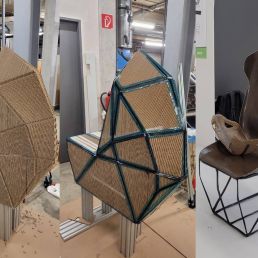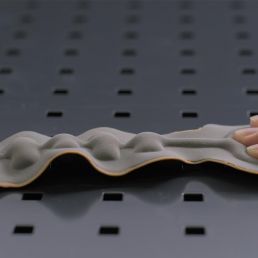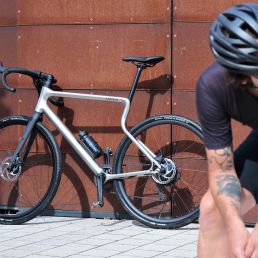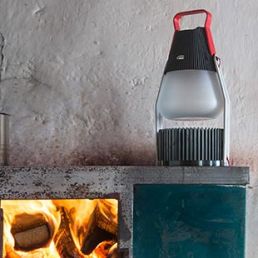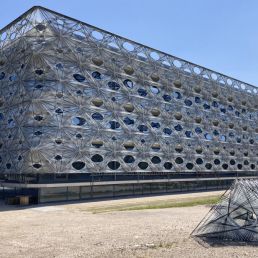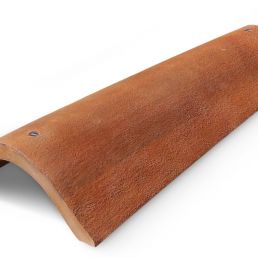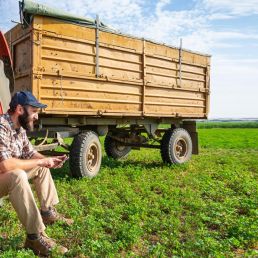
Circular materials for the future of table culture
Special show on circular and alternative materials
3–7 February 2023, Frankfurt
location: Ambiente, hall 11.0, stand A99, foyer north
organizer: Messe Frankfurt
material selection & didactics: Diana Drewes, Hon.-Prof. Dr. Sascha Peters
Wether it`s citrus peels, chitin and polysaccharides from crustaceans and insect shells, fish scales or trace elements from algae: a large number of start-ups, scientists and designers around the world are currently promoting material innovations at the interfaces between biology and classic material technologies that aim to achieve a sustainable reduction of the emissions will result.
Organic residues for a new material culture
In the biological cycle, the use of natural resources and the identification of previously unused organic residues offers the greatest potential for innovation, especially for creative professionals, for interior architects and designers and thus also for tableware.
Bio-based material alternatives for energy-intensive materials such as metals and ceramics are emerging, which also enable plastic-free product solutions. In addition, circular business models are increasingly being developed in the technical cycle.
On behalf of Messe Frankfurt we will implement a special area on material-based innovations for the future of table culture at Ambiente 2023. Particular attention will be paid to material developments based on organic residues that enable circularity in the biological cycle and are based on bacteria, fungi or proteins.
Highlight of the exhibition are:
– 3D printed fruit-bowl from lemon peels (Italy)
– bread box made of rattan material (Germany)
– dishes from leftover food (Japan)
– Glass from bone ash (Berlin)
– Ceramic glaze using human urine (South Korea)
Further information on Ambiente 2023 at: www.ambiente.messefrankfurt.com
image: bread box made of Karuun (Design: Sebastian Kommer)
Ecoblaq molecular wood colours
23 March 2024
Ecoblaq is a molecule manipulation method, a natural chemical reaction, making…
Natural fiber reinforced car seat
22 October 2023
The focus of the project "Design for Recycling" is a seat shell that is made…
MotorSkins morphing textiles
19 April 2022
Berlin based start-up MotorSkins designs and produces textiles with embedded…
3D Pioneers Challenge 2022
15 December 2021
The 3D Pioneers Challenge 2022 adresses tech pioneers who pave the way for…
IGNIS – Light from waste heat energy
12 August 2020
The availability of affordable, independent and, above all, clean electrical…
Brake disc with reduced fine dust
21 April 2021
Fine dust endangers our health. One of the main sources is traffic, especially…
Texoversum
15 July 2023
With the "Texoversum", Reutlingen University has put into operation a training…
Invisible Terracotta Solar Rooftile
10 May 2023
The family-run business Dyaqua has developed a technology to integrate a…
Xarvio – Digital Farming
8 January 2021
BASF Digital Farming GmbH has received the renowned Crop Science Award for the…

